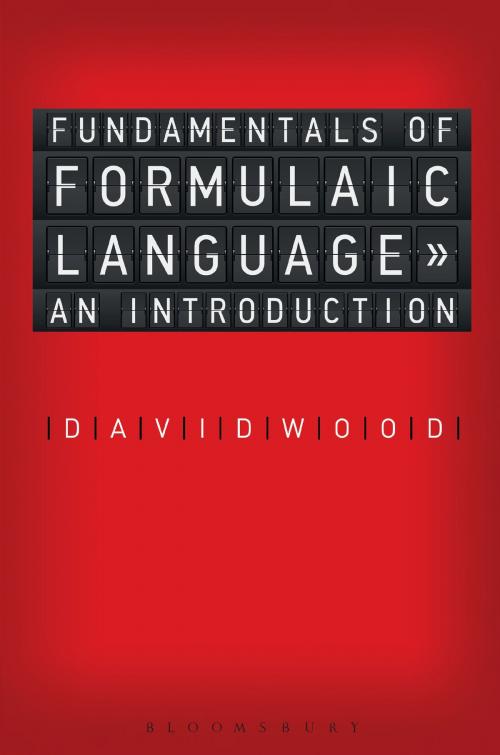Fundamentals of Formulaic Language
An Introduction
Nonfiction, Reference & Language, Language Arts, Linguistics| Author: | David Wood | ISBN: | 9780567277770 |
| Publisher: | Bloomsbury Publishing | Publication: | January 8, 2016 |
| Imprint: | Bloomsbury Academic | Language: | English |
| Author: | David Wood |
| ISBN: | 9780567277770 |
| Publisher: | Bloomsbury Publishing |
| Publication: | January 8, 2016 |
| Imprint: | Bloomsbury Academic |
| Language: | English |
This is the first book to address formulaic language directly and provide a foundation of knowledge for graduates and researchers in early stages of study of this important language phenomenon. It is also suitable for students of linguistics, applied linguistics, and language teacher education. The information that currently exists is scattered throughout articles and book chapters across a range of subfields of linguistics and applied linguistics.
Over the past few decades there has been a steadily increasing interest and research focus on the phenomenon of formulaic language in the fields of linguistics and applied linguistics. Slowly, a consistent definition has emerged, centring around the idea that formulaic sequences are multi-word units with specific meanings or functions, and some evidence points to their being processed mentally as wholes. Researchers from diverse backgrounds have identified the nature and roles of formulaic sequences in language acquisition and production, in the construction of text and discourse, in spoken and written language, and in language teaching. The increasing volume, diversity, and complexity of the state of knowledge about this emerging area of study is marshalled by this intelligent and well-written book.
This is the first book to address formulaic language directly and provide a foundation of knowledge for graduates and researchers in early stages of study of this important language phenomenon. It is also suitable for students of linguistics, applied linguistics, and language teacher education. The information that currently exists is scattered throughout articles and book chapters across a range of subfields of linguistics and applied linguistics.
Over the past few decades there has been a steadily increasing interest and research focus on the phenomenon of formulaic language in the fields of linguistics and applied linguistics. Slowly, a consistent definition has emerged, centring around the idea that formulaic sequences are multi-word units with specific meanings or functions, and some evidence points to their being processed mentally as wholes. Researchers from diverse backgrounds have identified the nature and roles of formulaic sequences in language acquisition and production, in the construction of text and discourse, in spoken and written language, and in language teaching. The increasing volume, diversity, and complexity of the state of knowledge about this emerging area of study is marshalled by this intelligent and well-written book.















